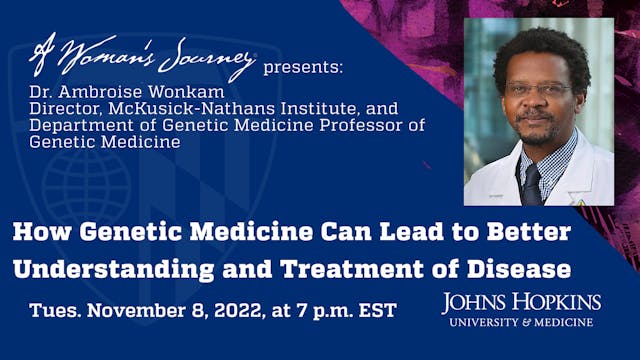How the Ear Hears, and What We Can Do About It
Medicine & Public Health
•
52m
Ever wondered exactly how your ears hear? Does more time using earbuds on your Zoom calls have you worried about hearing loss? Advances in cellular biology and genetics have helped define the molecular mechanisms by which sound is transduced and transmitted to the brain. With this expanding knowledge we can define the root causes of hearing loss, and so design therapeutic strategies. Join Dr. Paul Fuchs to learn about how refined prosthetics, gene therapy, and cellular regeneration are expanding future options for preventing loss or restoring hearing.
Paul Albert Fuchs, Ph.D. is the David M. Rubenstein Research Professor and Vice-chair of Otolaryngology-Head and Neck Surgery. He's the Director of the Center for Hearing and Balance, an interdepartmental research consortium including faculty from the Schools of Medicine, Engineering and Arts and Sciences. His NIH-supported research program explores the structure and function of synapses between mechanosensory hair cells and neurons of the inner ear.
To learn more, visit jhu.edu/hopkinsathome
Up Next in Medicine & Public Health
-
How Genomics Impacts Modern Life
Join Mike Schatz as he provides an overview of ancestry, explores the role of genomics in the identification and treatment of disease, explains agricultural genetics and the highlights impact of genomics on COVID19 research. To learn more, visit jhu.edu/hopkinsathome
-
How Genetic Medicine Can Lead to Bett...
-
Hopkins on the Hill: Indigenous Commu...
Researchers from the Center for American Indian Health work alongside indigenous communities to improve resilience, optimal health, and well-being. Learn from Dr. Melissa Walls how the Healing Pathways Project, a community-based participatory research study in the Great Lakes region, is identifyi...



